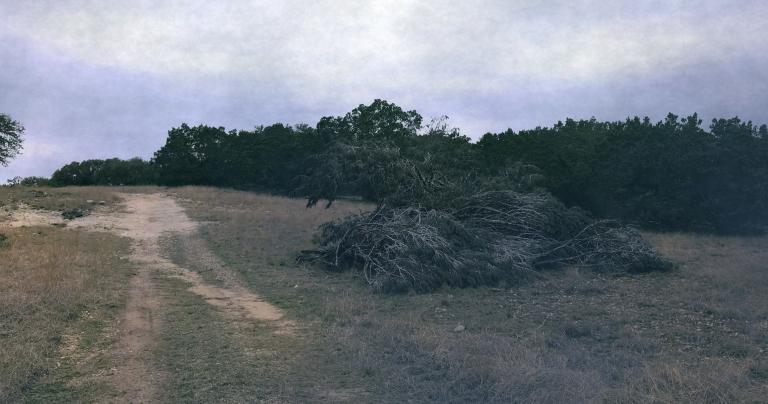Last week I posted Believe Your Experiences – Wisdom From The Shredded Veil. It discussed the importance of sharing our stories of mystical and Otherworldly experiences. Here are two key quotes:
Our mainstream society tells us – constantly – that people who see and hear things that others don’t are mentally ill. Or they’re under the influence of drugs or alcohol. Or they’re lying “to get attention.”
and
Hearing other people’s stories helps normalize them. It reminds us that we’re not the only ones who experience these things. Knowing we’re not alone helps us resist the gaslighting.
A few people pushed back. They were polite and respectful, but they wanted everyone to know that your senses will deceive you, and sometimes hallucinations do happen. Those people were right. We can’t simply take everything at face value.
At the same time, it’s just as wrong to dismiss everything that doesn’t have a so-called rational explanation as delusion.
You can choose to remain agnostic. I could have said “I saw what looked like a green glowing bird, but I don’t know what it really was.” That would be true statement, but it would be a grossly inadequate response to what was a powerful first-hand experience.
Learning to trust your mystical experiences is hard. It’s hard to overcome our mainstream society’s insistence that they can’t be real. For those of us who believe (or at least, strongly suspect) that there’s more to the universe than what can be measured and catalogued, it’s impossible to dismiss them as delusions.
But we can figure it out.
Know thyself
There’s a reason the training programs of most of the traditional occult societies spent so much time on introspection and personal development. If you’re going to work on Big Things, you’ve got to know what your skills are and where your passions lie.
Just as importantly, you’ve got to know yourself well enough to realize when a thought is yours and when it isn’t. Is that a God speaking to you, or is it your own wishful thinking? Is that a demon or your own fears?
When we’re dealing with the unknown, we usually begin by eliminating all the things it can’t be. If you know yourself well enough to eliminate self-delusion as a cause (and to recognize it when it is the cause) you’ll be able to do a much better job of identifying the true cause.
Separate the experience from the interpretation
You see what you see, hear what you hear, and feel what you feel. Your experiences are real, and no one has the right to tell you otherwise.
But experiences are pure data – they are sensory information without context. In order to figure out what they mean, we have to interpret them. That means putting them into the context of your beliefs about the world and what is and isn’t possible. It means comparing them to past experiences where the meaning is clear and seeing how well they fit. And it means comparing them to the reports of others, particularly other people who share your ideas about the way the world works.
If I say “I saw a ghost” I’m engaging in interpretation. If I say “I saw a translucent human-shaped figure moving down the hall at midnight” I’m reporting the facts of the experience. Now, I may very well later decide that yes, what I saw was a ghost. But interpretations need to wait till we’ve had time to consider them. In the moment, simply focus on the experience.
Look for ordinary causes
One of the best ways to learn to trust your experiences is look for ordinary, garden variety, this-world causes. Track down the source of that strange light. Listen closely to that strange music – if it’s a modern tune, it’s almost certainly not fairies. Look for ways light can be reflected, refracted, and dispersed into colors by prism-like things.
If you find an ordinary cause, great – now you know. The goal in discernment and interpretation is always to find the truth, not to confirm what we want to be true.
But if have an experience that fits an Otherworldly or magical matter and you eliminate every ordinary explanation, all you’re left with are extraordinary explanations. After I saw the green glowing bird in 2016, a (rather polite) atheist posted a long list of rational explanations for what I saw. I refuted all of them – at least to my satisfaction.
Because I didn’t jump to conclusions, I’m much more confident that the conclusion I reached is the correct one.
Spirits will lie
You can be sure of what you saw and heard. You can be confident it has an Otherworldly source. And it still may not be good and helpful.
The Gods are always virtuous and the Fair Folk either cannot or will not lie. But other spirits will lie. They will lie to get you to give them things you have no reason to give. They’ll lie so they can laugh as they watch you make a fool of yourself.
And while the Fair Folk don’t like, they’re well known for telling only the part of the truth that serves their purposes.
Even if a spirit tells you something, you still have to figure out what it means.
And if it’s true.
Just because they’re dead doesn’t mean they’re smart
I’ve heard Phaedra Bonewits say this many times – not sure if the quote originates with her or with Isaac. But in any case, it’s true.
Contact your great grandmother? Wonderful! Tell her how much you appreciate her living long enough to have children and raise them, because if she hadn’t, you wouldn’t be here. Develop a deep relationship with her. Ask her about how she lived.
Need advice on which job you should take? What makes you think she’s going to know? The dead know what they knew in life. If they’re active in this world they may see something we can’t – or they may not.
We honor our beloved dead because of who they are, not because they’re fountains of wisdom. Because most of them aren’t.
Build a strong foundation of values and virtues
If a God tells me to fly airplanes into buildings, I’m going to conclude that either this isn’t really a God, or it’s a God I don’t want to deal with anymore.
Is what you’re hearing in alignment with your values and virtues? Do you know what your values and virtues are? If not, start working through them.
“I was just following orders” is never an acceptable excuse for doing evil.
Repetition matters
Last month I wrote about how repetition matters in magic – the more you practice, the better you get. It’s true in discernment too. The more you do it, the better you get at it.
I’ve been worshipping and working with Cernunnos for close to 15 years. I recognize His voice the same way I recognize the voice of a close friend from across a crowded hotel lobby. I recognize the voice of the Morrigan. I still look for confirmation if one of Them asks me to do something out of the ordinary (particularly if They ask me to deliver a message to someone) but the divination always confirms what I heard – whether I pull cards or if I get someone to do it for me.
I recognize Brighid’s voice, but not so clearly. Lugh is even less certain. And deities with whom I have only a passing acquaintance? I have to go through the full discernment process.
But the more you evaluate your magical and spiritual experiences, the better you get at doing it, and the more confidence you can have in your interpretations.
You can have mental health problems and also have legitimate spiritual experiences
Hallucinations – where your brain tells you you’re seeing or hearing something you flat-out aren’t – happen. They don’t happen often, but they do happen. I can’t tell you how to distinguish hallucination from a mystical experience – I don’t know. But if you have no history of hallucinations (particularly if you’re an adult) then odds are very good what you’re seeing is real – you just have to figure out what that is.
Some people have both hallucinations and deep religious experiences. That’s a very difficult situation. In most cases, you’ll be better off setting your spiritual experiences aside and working through your mental health issues first. Some people can work on both at the same time. A few people have to work on both – it’s part of their sacred calling.
The only advice I can offer is to find a Pagan-friendly therapist. Because while successfully navigating the ordinary world is important, so is responding to a sacred call.
Learn to trust yourself
Read, study, and learn – collect as much knowledge as you can. Build a strong foundation of spiritual practice. If you believe something, believe it because you’re convinced it’s true, not because some authority figure told you it’s true. Not even if that authority figure is me. Especially not if it’s me – I don’t want responsibility for your life.
Know thyself.
Build a foundations of values and virtues.
Look for ordinary causes.
Practice the art of discernment.
And then when you’re convinced that what you saw or heard or felt really does have an Otherworldly source, act on it and follow it through to its conclusion.
For further reading
UPG: Why Unverified Personal Gnosis is Good and Necessary (March 2019)
Navigating the Mental Health Industry When You also have Mystical Experiences (November 2018)
Discernment: Distilling the Truth from our Pagan Experiences (July 2018)
Am I Hearing a God or Am I Going Crazy? (August 2017)
Spiritual Treatment Is No Substitute For Mental Health Care (March 2017)



















